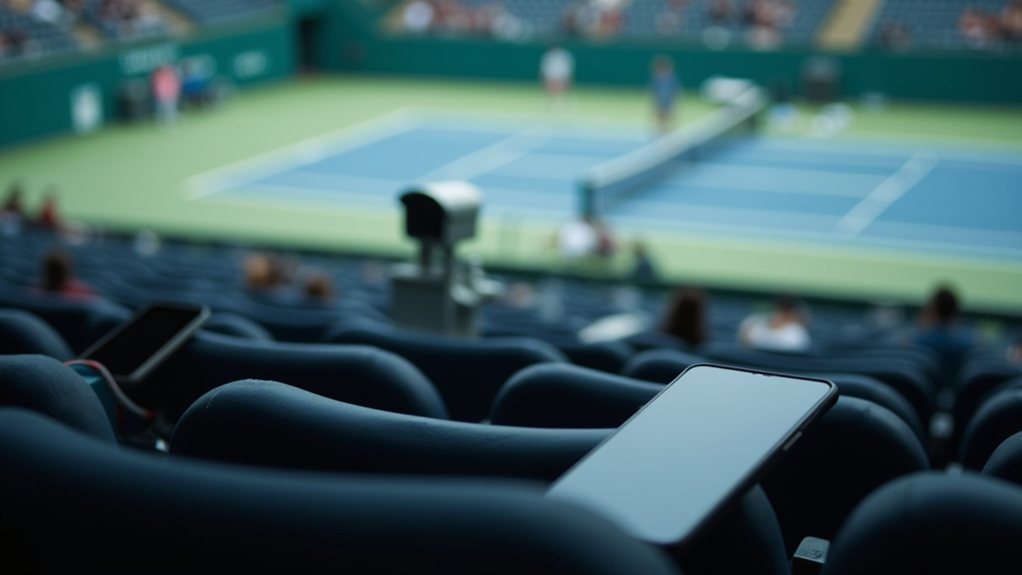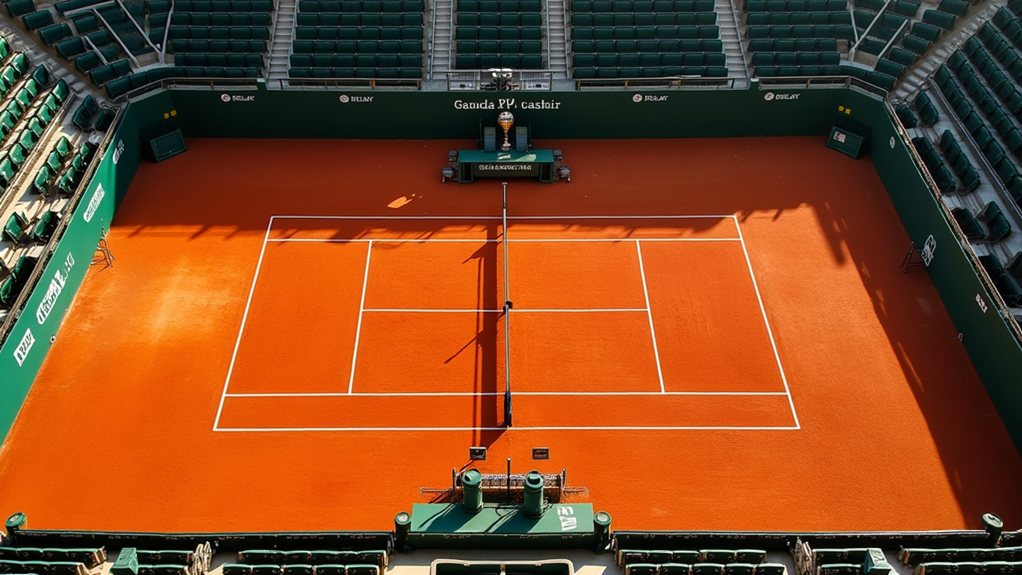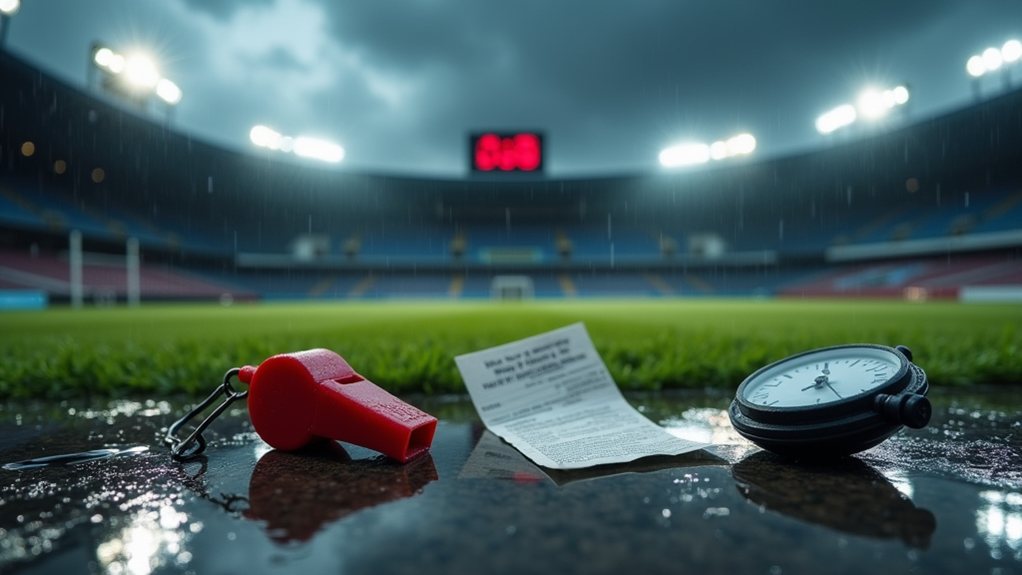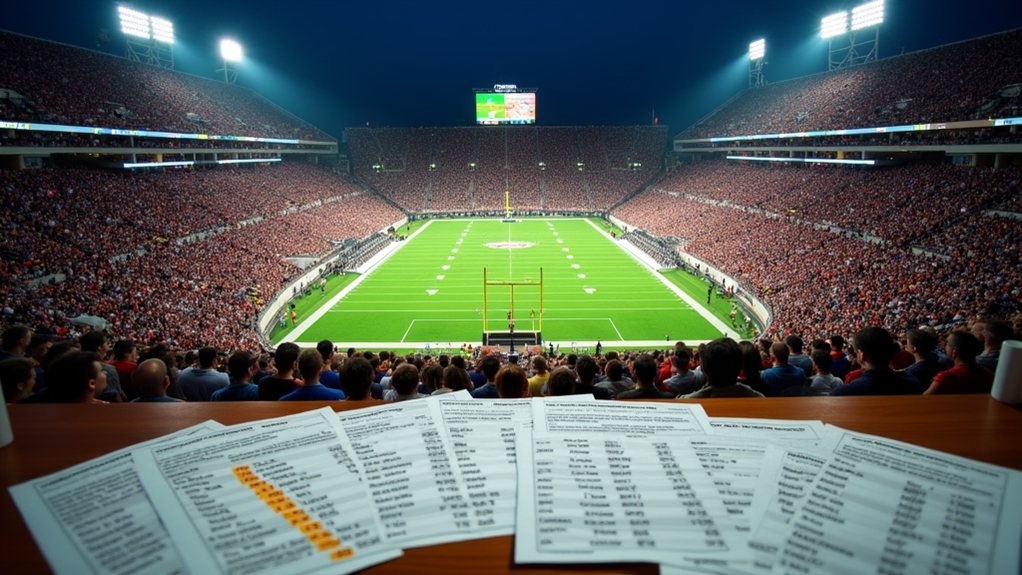Sports betting has entered a new era where every moment counts. Courtsiding gives bettors an unfair edge by transmitting real-time data before official broadcasts reach sportsbooks. This practice threatens market fairness and undermines trust in both betting platforms and sports competitions. Industry experts with decades of experience recognize courtsiding as a growing concern that costs betting operators millions annually. The battle between courtsiders and detection systems continues to evolve, raising significant questions about technology’s role in preserving sports integrity.
The Inner Workings of Courtside Information Exchange

The fast-paced world of courtsiding revolves around speed and precision in the sports betting arena. This gold standard technique requires individuals to be physically present at sporting events, gathering real-time data before official broadcasts reach sportsbooks.
Courtsiding dominates the betting world through real-time data collection at live sporting events, outpacing official broadcasts to sportsbooks.
Using specialized devices and custom apps, courtside operators transmit vital information to betting partners with lightning speed.
Success depends on seamless teamwork between on-site data collectors and remote bettors. The technology advantage creates a window where bettors can place wagers before bookmakers update their odds.
Don’t Miss Out! This fifth decade betting strategy remains effective despite improved security measures.
The primary objective is to exploit the time lag between live action and sportsbook updates, allowing for potentially guaranteed profits when placing strategic in-play wagers.
In Victoria, Australia, this practice is considered illegal activity with potential prison sentences of up to 10 years under the Integrity In Sports Act implemented in 2013.
Legal Gray Areas: Where Courtsiding Stands Globally
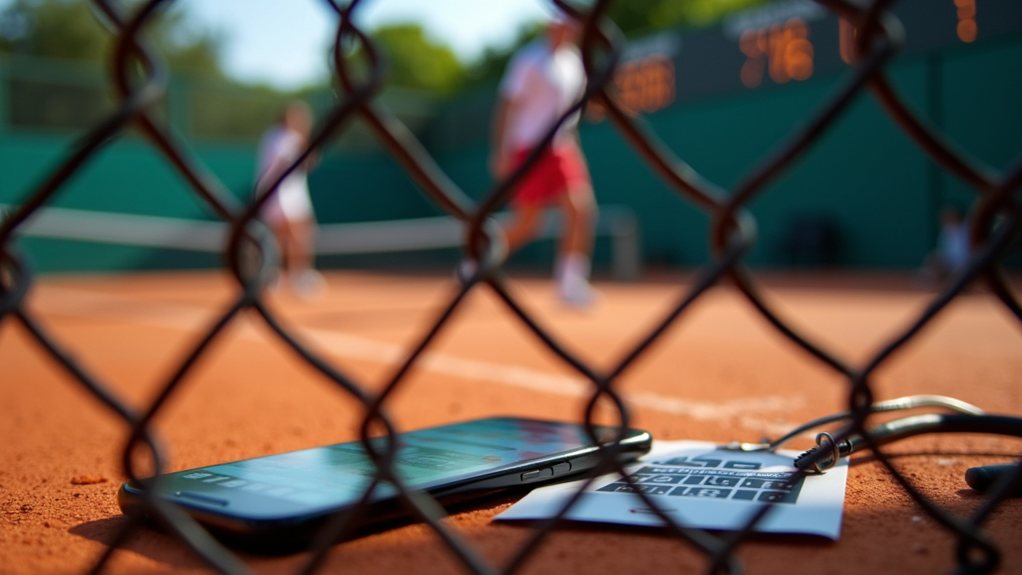
Despite widespread popularity among professional bettors, courtsiding exists in a complex legal gray zone that varies dramatically across global jurisdictions.
While Australia has criminalized the practice with penalties including imprisonment, countries like the UK and US haven’t specifically outlawed it.
Tennis remains the primary target due to its fast-paced nature and betting appeal.
Sports organizations have responded with improved security measures, including spotters and surveillance technology to identify suspected courtsiders.
Venues and bookmakers work together, monitoring suspicious behavior and betting patterns.
The legal debate continues around whether courtsiding truly threatens sports integrity or simply represents savvy information usage by bettors seeking an edge.
The practice is particularly prevalent in regulated gambling markets where sports betting is legal and widespread, creating enforcement challenges for authorities trying to balance consumer rights with sporting integrity.
Financial Implications for Betting Markets and Sports Integrity

While courtsiding operates in legal gray areas worldwide, its financial impact on betting markets remains undeniable and far-reaching. This practice exploits broadcast delays to place bets on already-occurred events, creating unfair advantages that can cost sportsbooks millions.
Though it doesn’t affect match outcomes, courtsiding undermines betting market integrity and public confidence in sports.
Courtsiding erodes the foundation of fair betting without changing game results, damaging public trust in sporting integrity.
- Courtsiders can earn six-figure incomes through systematic exploitation
- Betting platforms invest heavily in real-time technology to combat the practice
- Economic incentives drive persistence despite increasing regulatory challenges
- Major operators like Betfair and William Hill use sophisticated detection systems
- The practice corrupts betting markets without influencing actual gameplay results
Detection Methods and Preventative Strategies
As courtsiding operations become increasingly sophisticated, detection methods and preventative strategies have evolved into critical components of sports integrity protection.
Venues now employ trained spotters who identify suspicious behaviors while advanced electronic monitoring systems catch data transmitters in real-time.
Sports organizations are strengthening their defense through improved security protocols, staff training, and strategic partnerships with betting companies.
Many tournaments now restrict electronic devices and implement rigorous ticket terms that allow for immediate removal of suspected courtsiders.
These gold standard protection measures represent the industry’s commitment to fair play.
Don’t miss out on the benefits of these integrity safeguards that maintain sports’ credibility.
FAQs
Can Anyone Become a Courtsider or Are Special Skills Required?
Like a wolf sensing an opportunity, anyone can become a courtsider, though success requires quick reflexes, technological aptitude, sharp observation skills, and nerves of steel to evade detection.
How Much Can Professional Courtsiders Earn Annually?
Professional courtsiders reportedly earn between $30,000-$100,000+ annually, with earnings dependent on betting volume, risk tolerance, technological sophistication, and ability to evade detection by authorities.
Do Courtsiders Work Individually or in Organized Syndicates?
How far does the courtsiding underground extend? Courtsiders operate both individually and in organized syndicates, with teams providing efficiency advantages through specialized roles, while solo operators maintain lower profiles despite reduced scalability and resources.
Has Courtsiding Directly Influenced the Outcome of Sporting Events?
Courtsiding has not directly influenced game outcomes. It merely exploits timing gaps in betting markets, allowing bettors to capitalize on information delays without affecting actual play or player performance.
Are There Ethical Courtsiding Practices That Benefit the Sports Industry?
Ethical courtsiding practices potentially benefit the industry through greater transparency, improved real-time data distribution, and technological innovation that levels the playing field while maintaining betting market integrity and spectator trust.
